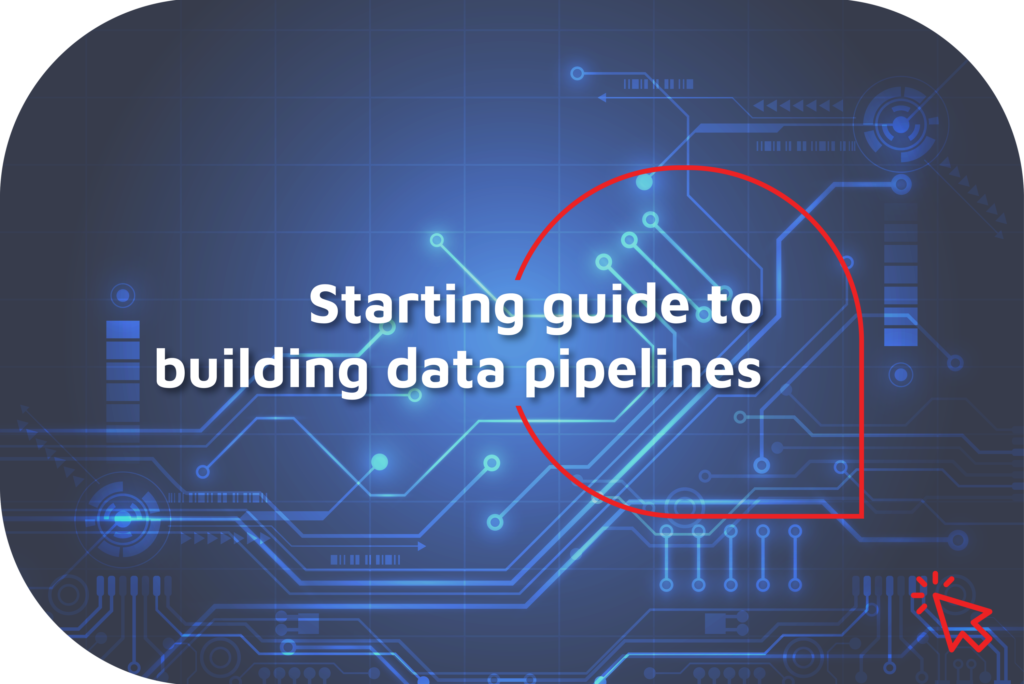Building a data engineering team the right way
1 December 2022 | Noor Khan

A data engineering team depending on the industry, size and type of business as well as scale type and form of data will differ in their structure, functions and day-to-day work. It is undeniable the invaluable benefits a good data engineering team can provide for a business whether you have a team in-house or work with external providers to hire a managed data engineering team.
In this article, we will look at what a data engineering team does, the team structure and how to approach building the right team for your business and data.
What does a data engineering team do?
A data engineering team is responsible for the design, build, implementation and monitoring of data infrastructure. Every organisation will be unique in the way their data engineering teams operate however here are some projects they would be responsible for.
Building data pipelines
If you are dealing with large volumes of varied data you will need to have a robust data pipeline infrastructure in place. The architecture and the technologies employed in the build of your data pipelines will depend on many factors including data type, format, source, velocity, volume and the requirement for availability.

Read the starting guide on data pipelines.
Cleansing, processing, and enriching data
The data once collected from its source, which will more than likely be spread across multiple disparate sources such as systems and software will need to go through the process of cleansing, processing, and enriching. Not all data you collect will be useful, a data engineering team will have to cut through the noise to find useful data which is free from duplication, low quality or dropouts. Once cleansed and processed, the data can be enriched. This creates a fuller more connected picture to provide meaningful insights.
Building and maintaining a data warehouse or data lake
Once the data is ready, it will need to be stored in a data warehouse, a data lake or suitable data storage infrastructure. The data engineering team will have to select the right technologies based on end requirements and goals to build the most suitable end destination for the data. To add to the complexity, some organisations will adopt a hybrid cloud and multi-cloud approach which means the data will be stored in multiple locations. There are several reasons for doing this including reduced costs and improved security, however, it will add to the complexity and the data engineering team will have to effectively manage the multiple data storage environments.
Making data accessible and secure
The data engineering team will have to ensure that the data is accessible whilst ensuring security. Accessibility by the right teams and individuals is key to ensuring that BI (Business Intelligence) can be driven from the data at a quick pace to ensure a business can act upon insights quickly and effectively.
Data security is a concern for many organisations especially those dealing with large volumes of data. Your data engineering team will need to ensure your data is secure by following industry best practices and building a robust infrastructure that will protect the data from leaks, gaps or any attacks.
Data reporting
The data engineering team will need to ensure that the data is presented in an easy-to-understand, user-friendly way with a data reporting and visualisation tool. Many organisations use off-the-shelf technologies such as Tableau and Power BI to do this, others will look at a custom approach to build a reporting tool that serves their unique goals and requirements.
Read our client's success story on reducing their data reporting turnaround by 80%.
Who is in a data engineering team?
Although this will vary for every organisation a data engineering team will consist of data engineers, data analysts and data scientists. Here is a closer look at these roles:
Data Engineer
The data engineers of a data engineering team will work on the actual data infrastructure and ensure that is available and accessible for the data analysts.
Data Analyst
A data analyst will work on the existing sets of data to garner insights based on data presented through the data reporting and visualisation tools. They will help make sense of the data to drive informed data-driven decisions.
Data scientist
A Data scientist will design the way the data is analysed, manipulated and stored. They will work closely with the data engineers to successfully work towards the common organisational and data goals.
How to build the right data engineering team?
Building the right data engineering team in-house can be challenging and expensive. A more resource and cost-efficient solution is a hybrid of in-house and a managed data engineering team. This way you can reap the benefits of an in-house team which can range from a better understanding of data and business goals as well as access to rich expertise and knowledge from a managed data engineering team. As you are exploring the avenues of finding the right data engineering partner, ensure you look to work with a business that aligns with your business values, vision and culture.
Ardent managed data engineering teams
At Ardent, our leading data engineers are proficient in world-leading technologies and can come on board to help you unlock your data potential. Whether you are looking to hire a completed managed data engineering team to take of your entire data infrastructure or have a team work seamlessly with your in-house team, we can help. Working with a wide variety of skills, our data engineering have a proven track record of delivering excellence.
You need to work with a partner that is:
- Credible
- Reliable
- Has a proven track record of success
- Has the skills to help you achieve your goals
..We can deliver that, get in touch to find out more or to get started on maximising your data potential.
Ardent Insights

Are you ready to take the lead in driving digital transformation?
Digital transformation is the process of modernizing and digitating business processes with technology that can offer a plethora of benefits including reducing long-term costs, improving productivity and streamlining processes. Despite the benefits, research by McKinsey & Company has found that around 70% of digital transformation projects fail, largely down to employee resistance. If you are [...]
Read More... from Building a data engineering team the right way

Stateful VS Stateless – What’s right for your application?
Protocols and guidelines are at the heart of data engineering and application development, and the data which is sent using network protocols is broadly divided into stateful vs stateless structures – these rules govern how the data has been formatted, how it sent, and how it is received by other devices (such as endpoints, routers, [...]
Read More... from Building a data engineering team the right way

Getting data observability done right – Is Monte Carlo the tool for you?
Data observability is all about the ability to understand, diagnose, and manage the health of your data across multiple tools and throughout the entire lifecycle of the data. Ensuring that you have the right operational monitoring and support to provide 24/7 peace of mind is critical to building and growing your company. [...]
Read More... from Building a data engineering team the right way






